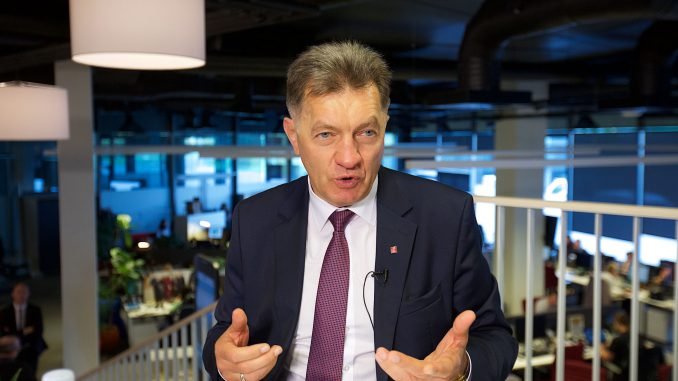
Butkevičius told the national radio that domestic consumption is expected to grow due to the raise of the minimum monthly wage, non-taxable income and wages in the public sector.
According to the prime minister, the 2016 draft budget includes fiscal policy measures that will promote economic growth not only due to the funding of various activities, i.e., investments that are being well utilised for the development of transport and energy infrastructure. Additional measures have been foreseen to improve industrial viability, strengthen the domestic market and domestic demand – which is relevant after export growth has slowed down
The prime minister said the non-taxable income amount will be raised by EUR 34 (from EUR 166 to EUR 200) from 1 January. Non-taxable income amount per every child in the family will grow from EUR 60 to EUR 120. The minimum monthly wage will be raised from EUR 325 to EUR 350. Wages of cultural and arts employees will grow by EUR 71 on average.
Butkevičius says these measures have a synergic effect and will first of all enhance the purchasing power, which in turn will promote the development of local businesses.
It is projected that in 2016 the state budget income together with international support, but excluding municipal budgets, will exceed EUR 8 billion, whereas expenditure will be EUR 8.65 billion.
The draft budget was formed assuming that in 2016 Lithuania’s GDP growth will be 3.2 percent , unemployment will fall by 0.3 percent to 8.8 percent, while the average annual inflation will be 1.4 percent.

Be the first to comment